Overview
National College of Engineering (NCE) is a Tribhuvan University (TU)–affiliated engineering college in Talchikhel, Lalitpur. Founded in 2001 (2058 BS) and accredited by the Nepal Engineering Council (NEC), the college runs four TU undergraduate programs: Bachelor of Civil Engineering, Bachelor of Electrical Engineering, Bachelor of Computer Engineering, and Bachelor of Electronics, Communication and Information Engineering.
Students enter through the Institute of Engineering (IOE) entrance system, and scholarship seats are allocated as per IOE rules.
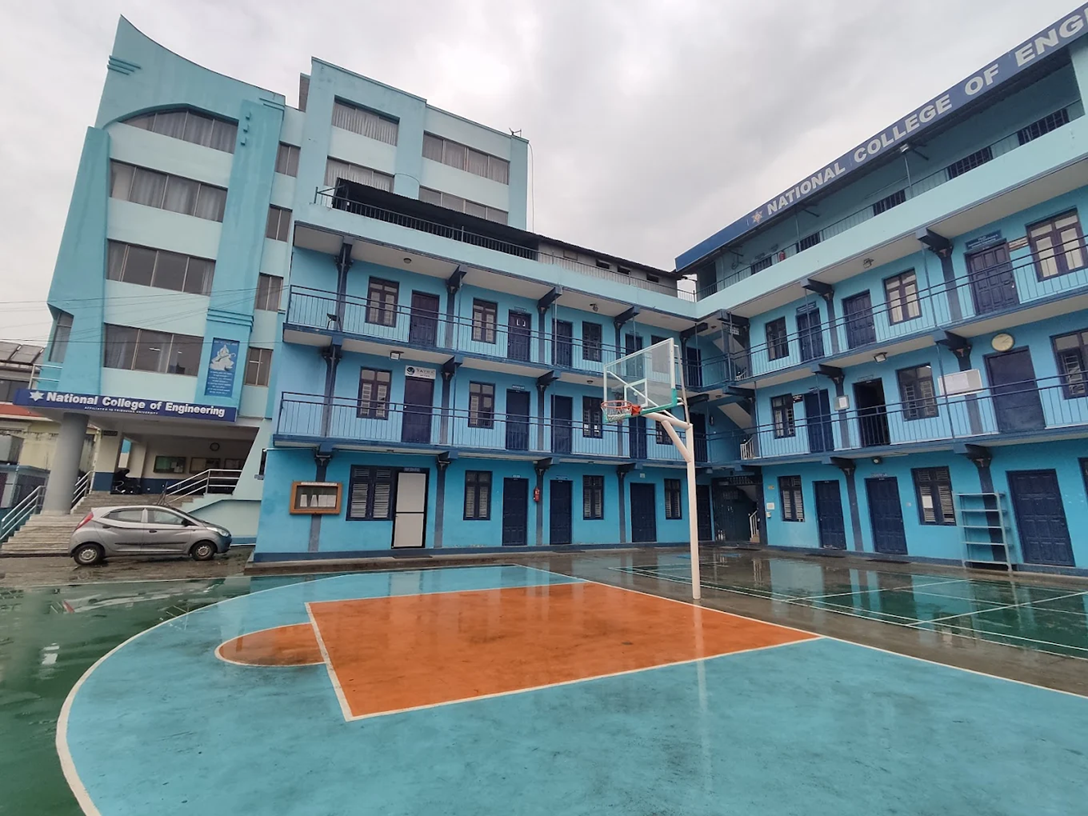
Quick Highlights
-
Location: Talchikhel, Lalitpur, Nepal
-
Established: 2001 (2058 BS)
-
Affiliation: Tribhuvan University (TU), IOE
-
Accreditation: Nepal Engineering Council (NEC)
-
Programs: Civil, Electrical, Computer, Electronics/Communication/Information
-
Intake Capacity: Civil (96); Electrical (48); Computer (48); Electronics/Communication/Information (48)
-
Entrance: IOE entrance exam required
-
Scholarships: Minimum 10% seats per program as per IOE rules; additional college schemes announced each intake
-
Learning Support: Laboratories, digital library, project spaces, R&D unit, academic counseling, workshops and seminars
-
Student Life: Clubs, competitions, cultural programs, sports and community engagement
Introduction
NCE was established by a group of university teachers and engineers with a clear academic purpose: to expand access to engineering education under TU with sound teaching, practical labs, and industry exposure. Since 2065 BS, the Nepal National Education Academy (N-NEA) has overseen management, placing emphasis on academic standards, ethics, and student development.
The college states a long-term plan to improve laboratory infrastructure, encourage student research, and expand meaningful ties with employers and professional bodies.
The academic calendar follows TU/IOE regulations, using the semester system with continuous assessment, internal evaluations, and final examinations conducted by IOE. NCE highlights performance in TU/IOE semester results and encourages student participation in project showcases, paper presentations, and technical competitions.
Academic Programs Offered
Bachelor of Civil Engineering (BCE) — 4 Years (96 Seats)
The Civil program covers planning, analysis, and construction of built infrastructure in the Nepali context—transportation systems, hydropower-related structures, water supply and sanitation, buildings, and geotechnical works.
Students learn surveying, structural analysis, construction materials, foundation engineering, environmental aspects, and project management aligned with national standards and IOE syllabi.
Curriculum Snapshot
-
Engineering Mathematics; Engineering Drawing; Applied Mechanics
-
Surveying; Fluid Mechanics; Hydrology; Hydraulics
-
Strength of Materials; Structural Analysis; RCC and Steel Structures
-
Soil Mechanics and Foundation; Transportation Engineering; Estimation and Costing
-
Water Supply and Wastewater Engineering; Environmental Engineering
-
Construction Planning and Management; Contract and Law (as per TU guidelines)
-
Fieldwork, laboratory classes, and capstone project
Graduate Pathways:
Site engineering, structural detailing, design office roles under licensed supervision, quantity surveying, contract management, and public sector examinations. Many graduates move into hydropower projects, municipal infrastructure, consulting firms, and NGOs working on water and sanitation.
Bachelor of Electrical Engineering — 4 Years (48 Seats)
The Electrical program addresses power generation, transmission, distribution, machines, protection, renewable systems, and energy management. The course supports Nepal’s energy priorities by building skills in grid planning, protection coordination, electrical safety, and project execution.
Curriculum Snapshot:
-
Circuit Theory; Electrical Machines; Power Electronics
-
Power Systems Analysis; High Voltage; Protection and Switchgear
-
Control Systems; Instrumentation and Measurement
-
Renewable Energy Systems; Energy Audit and Management (as per TU syllabus)
-
Substation Planning; Transmission and Distribution
-
Practical labs, simulations, industrial visits, and final-year project
Graduate Pathways:
Utilities and IPPs, system planning and O&M, electrical design firms, EPC contractors, safety compliance roles, and energy consultancy. Students often pursue NEC licensing and postgraduate studies in power systems or energy engineering.
Bachelor of Computer Engineering — 4 Years (48 Seats)
The Computer program blends computing foundations with hardware awareness and applied software engineering. Students learn algorithms, systems, networks, databases, AI fundamentals, and practical development workflows with an emphasis on project work aligned with real-world problems in Nepal.
Curriculum Snapshot:
-
Programming, Data Structures, Algorithms
-
Computer Organization; Operating Systems; Computer Networks
-
Database Systems; Software Engineering process models and QA
-
Web and Mobile Technologies; Embedded Systems basics
-
Discrete Structures; Probability and Statistics
-
Electives: data science fundamentals, computer vision basics, or related IOE options
-
Team projects, version control practice, and capstone
Graduate Pathways:
Software development, QA, DevOps support roles, tech startups, systems administration, and government IT projects. Many students contribute to local tech communities, hackathons, and open-source initiatives.
Bachelor of Electronics, Communication and Information Engineering — 4 Years (48 Seats)
This program prepares students for electronic systems, telecommunication networks, and information systems. It combines analog/digital electronics, signal processing, communication systems, and networking fundamentals with lab-based practice.
Curriculum Snapshot:
-
Electronic Devices and Circuits; Digital Logic
-
Signals and Systems; Analog and Digital Communication
-
Microwave and Antenna basics; Optical Communication concepts
-
Microprocessors and Microcontrollers; Embedded systems practice
-
Networking, Switching, and basic Network Planning
-
DSP fundamentals; Control basics; electives per IOE syllabus
-
Laboratory assignments, mini-projects, and capstone
Graduate Pathways:
Telecom operators, equipment vendors, broadcast and networking services, embedded systems roles, and ICT support across development projects.
Admission Process
Entrance and Eligibility
-
NCE follows IOE/TU rules. Applicants must pass the IOE entrance examination for the relevant engineering program.
-
Academic background: 10+2 Science or equivalent with required grades as defined by IOE. Diploma holders meeting IOE criteria may also apply.
-
Ranking and seat allocation proceed under IOE guidelines, followed by college counseling and enrollment.
Application Steps
NCE publishes intake notices with instructions each year. Based on recent practice:
-
Submit an online application via the NCE admission portal using IOE entrance roll number and rank.
-
Provide contact details and select program priorities.
-
Pay the application fee via eSewa, bank voucher, or Fonepay as directed on the NCE site.
-
Track the application status with roll number and rank on the portal.
-
For assistance, students can refer to the official website for current contact points and updates.
Documents at Admission
-
Academic certificates and mark sheets (SEE/SLC and 10+2/I.Sc./A-Level or equivalent)
-
Character certificate
-
Migration certificate (original)
-
Color print of IOE score card
-
Citizenship copy
-
Passport photos as specified
Note: Always check the latest notice on the NCE website for any updated instructions, deadlines, or fee details before you proceed.
Teaching Faculty and Learning Methodology
NCE’s teaching team includes full-time and visiting faculty members with backgrounds in IOE and industry. Classroom instruction combines lectures, tutorials, and problem-solving sessions. Labs support each core area, and students complete practical assignments tied to local engineering needs. Regular internal assessments, viva voce, and project evaluations help learners track progress.
Student projects draw on real cases: structural detailing for small public works, micro-hydro or distribution studies, simple SCADA exposure during visits, software development sprints, and embedded prototypes. Guest talks and short training sessions cover standards, safety, documentation, and ethical practice. The college encourages participation in paper writing, conference posters, and inter-college competitions to build communication and teamwork.
Infrastructure and Learning Facilities
-
Laboratories: Discipline-specific labs for Civil, Electrical, Computer, and Electronics with equipment aligned to IOE curricula.
-
Library and E-Resources: Physical library with textbooks, codes, journals, and a digital section for research articles and standards where available.
-
Classrooms: Projector-enabled rooms suitable for presentations, code walkthroughs, and design critiques.
-
R&D Unit: A dedicated unit promotes student-faculty research, small grants, writing support, workshops on proposal and academic writing, and collaboration with external groups.
-
Internet and Computing: Campus network with access points in academic blocks and computer labs for programming, simulation, and data work.
-
Student Support: Counseling, academic advising, and guidance for NEC registration steps after graduation.
Student Life and Campus Experience
Campus life brings a mix of academics, club activities, sports, and community outreach. Students join technical clubs for coding, electronics, robotics, civil engineering field activities, and energy projects. Cultural events, welcome and farewell programs, blood donation drives, and volunteer work create a balanced environment where learners can connect beyond classrooms.
Competitions include project showcases, hackathons, paper contests, and model exhibitions. Sports events run throughout the year, and interest groups organize talks on career planning, graduate studies, exam preparation, and interview skills.
Extracurricular Activities (ECA)
-
Technical Clubs: Coding groups, electronics/IoT forums, civil fieldwork circles, energy and sustainability interest groups.
-
Workshops and Short Courses: CAD basics, GIS introduction, safety and standards, circuit debugging, version control, and technical writing.
-
Seminars and Guest Sessions: Practitioners from utilities, consulting firms, software companies, and development partners share lessons from ongoing projects.
-
Community and Outreach: Awareness campaigns, school visits, and local infrastructure observations encourage civic responsibility.
Scholarships and Financial Support
Seats Allocated as per IOE Rules
At least 10% of seats in each program are earmarked for scholarships in line with IOE criteria. Typically, there are merit-based opportunities and seats reserved for students from public schools through merit lists published after the IOE entrance.
College Scholarships
NCE announces additional schemes each intake cycle. Examples include:
-
Entrance rank–based fee concessions at admission
-
Semester toppers: fee waivers in subsequent semesters as per the current policy
-
Consistent performance incentives (e.g., fee waivers in later semesters for students who pass continuously up to a certain semester)
NCE also publicizes a stipend for meritorious students in specific intakes. The amount, eligibility, and application window are stated in official notices. Applicants should review the latest scholarship page or contact the admissions office for the current year’s details.
Achievements and Institutional Milestones
-
Academic Results: NCE reports steady performance in IOE semester examinations across departments.
-
Projects and Showcases: Student teams present capstone works—software products, embedded prototypes, small structure models, and power system studies—at internal and inter-college events.
-
Research Activities: The R&D unit supports proposal writing, journal submissions, and collaboration with external researchers through talks and training sessions.
-
Industry Linkages: Regular guest lectures and internship coordination with utilities, consulting firms, software companies, and development actors.
Research and Development (R&D) Unit
The R&D unit connects classroom learning with inquiry and problem-solving:
-
Student-Faculty Projects: Seed support for teams proposing practical ideas in civil structures, power systems, electronics, or computing.
-
Skills for Publishing: Sessions on academic writing, citation practices, and peer-review standards.
-
External Engagement: Lectures by researchers, low-cost training events, and collaboration windows for cross-institution projects.
-
Alumni Network: Invited alumni share field experience, review student proposals, and offer mentorship on career choices.
This structure encourages early exposure to research methods while keeping student projects aligned with the national context.
Career Guidance, Internship, and Placement Support
NCE provides counseling on career planning and graduate studies. Departments and clubs coordinate talks with engineers and software practitioners about entry-level roles, internships, and NEC licensing steps. Many students seek internships during later semesters—some through faculty networks, some through open calls from utilities, IT firms, or construction companies. The college connects students with guest organizations for short practicums, plant visits, site exposure, and software development sprints.
Quality Assurance and Compliance
-
Affiliation and Accreditation: TU/IOE affiliation and NEC accreditation confirm program standards and licensing pathways for graduates.
-
Examination and Evaluation: Internal assessments and TU/IOE final exams ensure fairness and transparency.
-
Policies and Codes: The college communicates rules on attendance, lab safety, plagiarism, and exam conduct.
-
Feedback Loops: Student feedback—through class reps or department channels—helps refine timetables, lab usage, and support sessions.
Why Choose NCE?
-
TU/IOE Framework: Degrees recognized across Nepal with clear NEC licensing pathways.
-
Program Choice: Four core engineering programs aligned with national needs—civil works, energy, telecom/ICT, and computing.
-
Lab-Backed Learning: Structured practicals mapped to IOE syllabi, plus project spaces for prototypes and software builds.
-
R&D Exposure: A unit that helps students write, present, and connect with external projects and researchers.
-
Academic Support: Counseling, remedial sessions where scheduled, and guidance on exam preparation.
-
Scholarship Avenues: IOE-mandated scholarship seats and college-announced schemes for meritorious and consistent performers.
-
Community and Networks: Clubs, alumni sessions, and guest talks that link study with practice.
-
Location Advantage: Lalitpur setting with access to industry, government offices, and professional societies in the Kathmandu Valley.
Admission Checklist and Timeline Tips
-
Before Entrance: Review IOE eligibility and prepare for the entrance test with math, physics, and chemistry fundamentals.
-
After Result: Note your rank and follow NCE’s instructions on priority selection and online application.
-
Document Readiness: Keep scanned copies of certificates, photos, citizenship, and the IOE score card ready for upload.
-
Scholarship Window: Track the scholarship notice dates, criteria, and any fee concession policy listed for the intake.
-
Counseling and Selection: Engage early with the admissions desk for program choice clarity—Civil vs Electrical vs Computer vs Electronics/Communication/Information—based on interests and long-term plans.
-
Fee and Payment: Use the payment channels mentioned on the NCE admission portal; save receipts and capture the application status page for your records.
Student Support and Well-Being
-
Academic Counseling: Guidance on course loads, electives within IOE rules, lab schedules, and retakes if required.
-
Health and Safety: Lab safety drills, equipment handling instructions, and emergency protocols in project areas.
-
Peer Learning: Study circles, code labs, and group design critiques under faculty supervision.
-
Life on Campus: Cultural programs, sports meets, and volunteer events run by student groups with faculty oversight.
Responsible Practice and Ethics
NCE encourages ethical engineering practice across all programs: responsible use of software, proper citation in project reports, adherence to building codes and electrical standards, and responsible data use for computing projects. Students receive guidance on NEC licensing, professional conduct, and documentation practices expected in public procurement and consulting work.
How Parents and Guardians Can Engage
-
Orientation and Updates: Attend open houses, orientation sessions, and result briefings.
-
Academic Calendar: Track semester milestones, internal assessments, and exam windows.
-
Support at Home: Provide a study environment and encourage safe lab habits and time management.
-
Career Conversations: Discuss program choices and internships early, matching strengths with sector needs.
Conclusion
National College of Engineering offers TU/IOE undergraduate programs in Civil, Electrical, Computer, and Electronics/Communication/Information Engineering with NEC accreditation and a structured path to professional practice in Nepal. The college places weight on lab-based learning, projects, research exposure, and scholarship access under IOE rules. Students seeking an engineering education in the Kathmandu Valley with clear licensing and career pathways will find NCE’s academic framework, facilities, and student community aligned with that goal.
Policy updates, fee structures, academic calendars, and scholarship rules can change by intake. Always refer to the official NCE website for the latest notices, admission forms, and program-wise instructions. For program syllabi and examination rules, consult TU/IOE sources as the final reference.
Contact Details
National College of Engineering
Email Address: info@nce.edu.np
Phone Number: +977-1-5151065, +977-1-5151170, +977-1-5151387, +977-1-6203600
Website: http://nce.edu.np



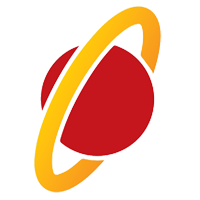
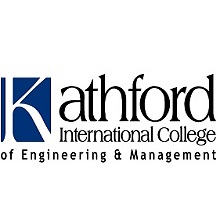
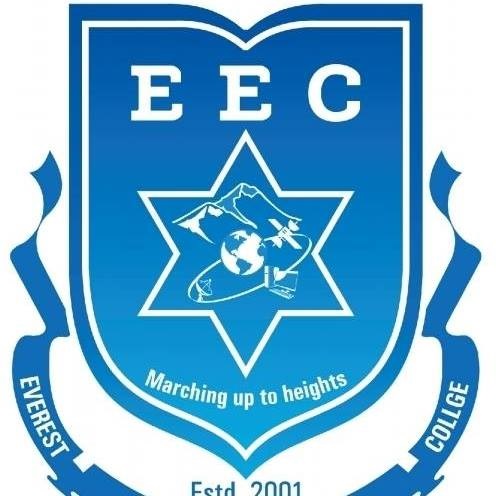
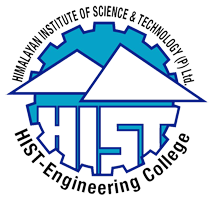










You need to login to comment.